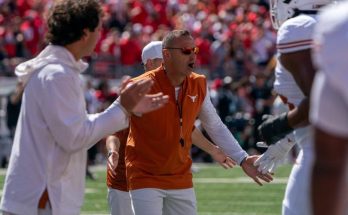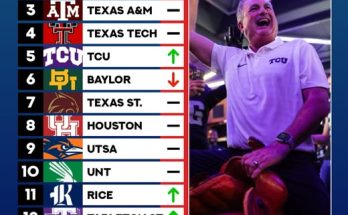The Tennessee Volunteers’ football program has recently undergone a significant upheaval concerning the future of quarterback Nico Iamaleava. Once hailed as the cornerstone of Tennessee’s offensive resurgence, Iamaleava’s sudden departure has sent shockwaves through the college football community. This development not only alters the trajectory of the Volunteers’ upcoming season but also highlights the evolving dynamics of collegiate athletics, particularly the influence of Name, Image, and Likeness (NIL) agreements.New York Post
Nico Iamaleava’s journey to Tennessee was nothing short of remarkable. A native of Long Beach, California, Iamaleava emerged as a five-star recruit, drawing comparisons to some of the game’s greats. His high school tenure was marked by impressive statistics and accolades, including the Polynesian High School Football Player of the Year in 2022. His commitment to Tennessee was celebrated as a pivotal moment for the program, signaling a return to prominence.Wikipedia
In his freshman year, Iamaleava served as the backup to Joe Milton but seized the spotlight during the Citrus Bowl. In his first career start, he threw for 151 yards and accounted for four total touchdowns, leading Tennessee to a decisive 35–0 victory over Iowa. His performance earned him the Citrus Bowl MVP, setting high expectations for his subsequent seasons.Wikipedia+1Saturday Down South+1
The 2024 season saw Iamaleava step into the role of starting quarterback. He led the Volunteers to a 10–3 record and secured the program’s inaugural College Football Playoff appearance. Over the season, he amassed 2,616 passing yards, 19 touchdowns, and five interceptions, completing 63.8% of his passes. However, despite these numbers, his performance in critical games, notably the playoff loss to Ohio State, left room for scrutiny.WikipediaESPN.com+1Wikipedia+1New York Post
The turning point came in April 2025, when reports emerged of Iamaleava seeking to renegotiate his NIL agreement. Sources indicated that his representatives were pushing for a more lucrative deal, surpassing his current valuation of $3.1 million. This move coincided with his absence from a team practice, raising concerns about his commitment to the program. The timing was particularly sensitive, with the spring transfer portal opening on April 16, suggesting that Iamaleava was exploring other opportunities. SI+9Yahoo Sports+9SI+9Gator Sports+3New York Post+3ESPN.com+3SI
Tennessee’s response was swift and resolute. Head coach Josh Heupel informed the team of the decision to move forward without Iamaleava. The coaching staff’s lack of prior communication with Iamaleava regarding his absence from practice further strained relations. This decision left Tennessee with only two scholarship quarterbacks, neither of whom had starting experience, prompting immediate considerations for roster adjustments. New York Post+5Saturday Down South+5SI+5ESPN.com
The departure of Iamaleava underscores the profound impact of NIL agreements on collegiate sports. While these deals offer student-athletes unprecedented financial opportunities, they also introduce complexities that can disrupt team cohesion and performance. Inequities in NIL valuations among players can lead to internal conflicts, as evidenced by Iamaleava’s situation. Moreover, the influence of external parties, such as agents and family members, can further complicate negotiations and decision-making processes.
For Tennessee, the immediate challenge lies in stabilizing the quarterback position. The coaching staff must evaluate the capabilities of the remaining quarterbacks and potentially seek reinforcements through the transfer portal. This situation also serves as a catalyst for broader discussions within the athletic department about managing NIL agreements and maintaining team unity. Establishing clear guidelines and support systems for student-athletes navigating these opportunities is becoming increasingly essential.
Looking ahead, the Iamaleava saga may prompt universities and governing bodies to reassess policies surrounding NIL deals. Striking a balance between fair compensation for student-athletes and the preservation of traditional collegiate values is a delicate undertaking. As the landscape of college athletics continues to evolve, the experiences of programs like Tennessee’s will likely inform future regulations and best practices.Yahoo Sports+3New York Post+3SI+3
, the departure of Nico Iamaleava from the Tennessee Volunteers is a watershed moment that encapsulates the challenges and transformations facing modern college football. It serves as a cautionary tale about the potential pitfalls of NIL agreements and their capacity to reshape team dynamics. As programs navigate this new era, the lessons learned from Tennessee’s experience will be invaluable in guiding future decisions and strategies.



